To access all site contents, click HERE.
Why do we run this separate item, Mike Royko 50 Years Ago Today? Because Steve Bertolucci, the hero of the serialized novel central to this Substack, “Roseland, Chicago: 1972,” lived in a Daily News household. The Bertoluccis subscribed to the Daily News, and back then everybody read the paper, even kids. And if you read the Daily News, you read Mike Royko. Get your Royko fix on Twitter too: @RoselandChi1972.
October 9, 1972
“It’s puzzling the way telephone lines can get crossed sometimes,” writes Mike today. “For example, the other day I phoned Larry O’Brien at Democratic headquarters to ask him about the latest disclosures in the Watergate affair.”
Larry O’Brien is head of the Democratic National Committee.
Oh my, we need to catch up with Watergate. Over in THIS CRAZY DAY IN 1972, we admittedly lost track of Watergate developments since early September. So much has been going on in Chicago, we have’t had room.
Let’s do a brief catch up on recent Watergate developments in our 1972 timeline, through today, October 9:
Who’s indicted by a federal grand jury for bugging DNC headquarters in the Watergate complex? The five guys arrested for breaking into the offices back in June, plus G. Gordon Liddy—
—who’s former finance committee counsel at CREEP—
—and E. Howard Hunt, former White House consultant.
They’re all charged with conspiring to spy on DNC headquarters with illegal wiretaps and other electronic surveillance. The Justice Department claims there’s no evidence to suggest anyone else was involved. If this were a text, I would insert the laughing-crying emoji here.
Next:
Yep, they all say they’re not guilty.
“(WASHINGTON (UPI)—Criticizing both political parties, activist John Banzhaf filed application Monday for appointment of a special prosecutor in the alleged bugging of the Democratic National Committee.
“Banzhaf, a George Washington University law professor best known for his anti-smoking crusade, field a 28-page application in U.S. District Court for an impartial, unbiased prosecutor.
“Banzhaf charged later in a statement that the Democrats themselves should have filed the application but they ‘would rather have the issue than the special prosecutor’….Banzhaf also criticized the Justice Department, which has been handling the investigation, for demonstrating ‘the evil of the conflict of interest.’”
“WASHINGTON—Two of President Nixon’s top campaign officials each withdrew more than $50,000 from a secret fund that financed intelligence-gathering activity against the Democrats, according to sources close to the Watergate investigation.
“The two officials, both White House aides, are Jeb Stuart Magruder, deputy director of the Committee for the Re-election of the President (CREP) and Herbert L. Porter, scheduling director of the committee.”
“WASHINGTON [AP]—Numerous records were destroyed at offices of the Committee for the Re-Election of the President following the June 17 break-in at Democratic offices, according to sources quoted today in the Washington Post.
“Two top campaign officials…directed a massive ‘housecleaning’ including the destruction of records pertinent to the case, the newspaper quoted sources as saying.”
Last, Chicago Today summed up the Watergate situation masterfully in this October 8 editorial. You can skip it, of course, but I promise it’s super interesting.
Back to Mike’s column today. Here’s an edited version of the transcription of the phone conversation he allegedly had after calling DNC head Larry O’Brien:
“As I recall, the conversation went something like this:
“(Ring, ring. Click.)
“‘Hello, this is O’Brien.’
“‘Mr. O’Brien, I’m calling to ask you about the latest disclosures in…’
“‘Mitchell here.’
“‘Who?’
“‘Mitchell.’
“‘But I was talking to O’Brien. What are you doing on the line?’
“‘I don’t know. My bug rang and I answered it.’”
[Eventually President Nixon accidentally joins in.]
“I was just trying to get Coach Allen with a play he ought to try,” says Nixon.
“Mr. O’Brien, I really think there’s something wrong with your line,” says Mike finally. “I suspect it may be bugged.”
“‘Just a moment, I want to make one thing perfectly clear. This administration does not bug telephones, and if we do, we don’t know anything about it because it is happening on a lower level.’
“‘Chief, will you please hang up?’
“‘All right, John, but don’t you think the old Statue of Liberty play will work?’”
Note: What’s all that about “Coach Allen” and “the old Statue of Liberty play” from Nixon? As we mentioned last week when Mike looked at Nixon’s tough stance at eliminating both TV reruns and the NFL blacking out home games, Nixon was a huge football fan, pals with Redskins coach George Allen. And yes Future Readers, who I assume will know the Washington D.C. team by a different name, the old name was “Redskins.”
There’s a story, perhaps urban legend, that Nixon called in a play to George Allen during the 1971 play-offs, and they used it.
Did Nixon call a play during the 1971 play-offs? ESPN has an interesting theory.
October 10, 1972
“It is time to add another chapter to the exciting political political saga of Jesse (The Jetstream) Jackson, leader of men,” writes Mike today.
“Let us go back to the spring when the Jetstream saga begins.”
This is only the third time that Mike has used his nickname for the Rev. Jesse Jackson, a creation never explained but intuitively understood by all.
Understood how? I’ve never tried to put it into words before, even mentally. Here’s an attempt: I think “Jetstream” is meant to encompass Jackson’s prodigious abilities in front of a microphone—hot air—combined with the way he had of seeming to be everywhere, quickly, whenever there was publicity to be had.
Readers, how would you define the meaning of the “Jetstream” nickname? I’d love to update here with your thoughts.
It’s time to go over Mike’s history in print with Rev. Jesse Jackson. It’s a see-saw, which is classic Mike. He can write sympathetically about people you think he either hates or incontrovertibly opposes. Then he can turn around and disagree with people he likes.
The perfect examples in 1972 are Mayor Daley and Ald. Bill Singer. Mike’s current (in 1972) bestseller, “Boss,” a biography of Mayor Daley, makes pretty clear how strongly Mike opposes Daley’s Machine politics, if you didn’t already get that from his column. And Mike really likes Ald. Singer, who served as a judge in Mike’s penny-pitching contest. But when it came right down to it, Mike disagreed with Singer’s alternative slate of delegates supplanting Mayor Daley’s elected delegates at the Democratic National Convention in July. (See July 6 and July 11 columns.)
Jesse Jackson is an example of Mike’s see-saw all by himself, as you’ll see.
Mike mentioned Jackson’s name briefly in one 1969 column and one in 1970. When Mike got to Jackson in 1971, it was the first column actually about Jackson, and the first Jetstream column.
The Jetstream column #1 — “For a change, try Jetstream”— came soon after Jackson’s unsuccessful attempt to get on the 1971 Chicago mayoral ballot, as an independent.
Jackson challenged the state election law requiring independents to gather voter signatures amounting to 5% of the previous election’s turnout. A federal panel of judges ruled that it was OK to require major party candidates to gather fewer signatures because their obstacle to participating in the general election was getting elected in a primary.
Jackson’s suit went to the Supreme Court about six weeks before the April 6, 1971 mayoral election, but the judges didn’t want to basically make a local election law ruling during an election. So Jackson had to get 58,000 signatures to get on the ballot, versus 4,000 for Mayor Daley and 2,800 signatures for Democrat-turned-Republican Richard Friedman. Naturally, Jackson was not on the ballot.
Jackson ended up endorsing Friedman against Mayor Daley; sort of denying he endorsed Friedman; and running as a write-in candidate himself. He got 35 votes.
A few weeks after losing that election, Jackson made the announcement that precipitated Mike’s Jetstream #1 column. Jackson and national Black leaders announced they would form a new political party to run a Black presidential candidate in 1972, probably Cleveland Mayor Carl Stokes.
“There will be a party in 1972 under black leadership,” Jackson said at his regular Saturday morning Operation Breadbasket meeting. “It won’t exclude whites.” Answering calls from the audience about a Vice President, Jackson said, “There is nothing wrong with Hubert Humphrey being Carl Stokes’ Vice President.”
A couple of days later, Mike’s Jetstream #1 column followed Rev. Jesse Jetstream holding a new press conference every few minutes, in a different outfit each time, and making announcements like “I wish to announce at this time that I am in. There is no way I can be stopped.”
“What are you running for? someone asked.
“‘I have not decided that yet,’ the Rev. Jetstream said, leaving the room.”
It’s just a fun column, lampooning Jackson’s hip dress at the time and scattershot political alliances. By 2022, we’re so used to seeing Jackson in a suit that we forget Mike wasn’t making it up when he describes Jackson in a leather vest.
Mike next wrote about Jackson for his December 8, 1971 column. In typical Mike fashion, the must have confounded many readers by adopting a tone that’s clearly on Jackson’s side throughout:
In “Jesse Jackson vs. Hanrahan,” Jackson waited with others in the outer office of Mayor Daley’s Democratic Headquarters at the Sherman House to see if the slating committee would run indicted Cook County State’s Attorney Edward Hanrahan for re-election in 1972.
Jackson had shown up early that morning and asked to see Daley, Mike noted, adding: “No other civil rights leader bothered to try.”
Daley listened politely to Jackson’s threat to lead a Black voter revolt if the party slated Hanrahan, Mike wrote. Daley “is always polite and attentive to men like Jesse Jackson and Martin Luther King. To their face at least.”
As they stood around, “North Side ward boss” Jerry Huppert sneered to Mike that Jackson had only gotten 14 votes in the mayoral election. [Note: Officially, he got 35 votes.] “He’s a heckuva power, ain’t he?” said Huppert.
“But Huppert didn’t mention that Jackson couldn’t get on the regular ballot because Illinois’ election laws are as open to non-party members as Russia’s are,” wrote Mike.
The 1972 election season went on. Mike would wait until July to write about Jackson again directly, just before the Democratic National Convention.
Meanwhile, Jackson announced in January that he’d endorse Nixon if the president began “a comprehensive economic plan for the poor.”
Eventually, Jackson joined Ald. Bill Singer’s drive to replace Mayor Daley’s Cook County delegates to the Democratic National Convention elected in the primary, charging that the Machine had flouted new party rules to open candidate selection to independents, and include a larger proportion of Blacks, women and young people.
The Singer-Jackson independents ultimately elected their own delegates, who replaced Daley’s people at the July Miami convention after an early morning rancorous party vote from all the delegates.
Mike was skeptical of the Singer-Jackson alternate delegates. The independents elected their own delegates in a process that wasn’t representative of Democratic voters either, Mike pointed out, and they excluded people who directly represented ethnic, older, and working class voters. That stance made liberals’ heads explode, especially when Mike’s columns were copied by Machine types and passed around the convention in support of the Daley delegates.
Note: For a look at how Ald. Bill Singer and Rev. Jesse Jackson got Mayor Daley and his elected delegates thrown out of the Democratic National Convention, visit TCD1972 for July 10-16. You’ll find all the links there for coverage of the whole wild process leading up to the convention, too.
On July 5, Mike wrote his second column ever focusing on Jackson—third, if you count the Hanrahan slating column, which wasn’t really about Jackson.
By then, the Democratic National Convention’s Credentials Committee had ruled in favor of the Singer-Jackson delegates attending and voting at the convention over Mayor Daley’s people. Still, no one was sure if that would really happen when the convention actually convened.
Mike expressed his skepticism of the independent delegates, focusing on Jackson for this column:
“Jesse Jackson has suddenly emerged as one of the leaders of the Illinois delegation to the Democratic convention,” wrote Mike. “He shows up on the network news shows with such frequency that he barely has time to change clothes six times a day.”
NOTE: Was there a specific event where Jackson changed outfits between appearances on the same day, or within a few minutes? Mike loves this joke. I haven’t seen a mention of anything like this anywhere, but if anybody knows, please share! Probably, Mike is just using exaggeration for humor.
Jackson was definitely the only hip dresser among Chicago politicos of this time.
Next, Mike recalled that Jackson was outraged when Edward Hanrahan won the Democratic primary, even though Mayor Daley had slated Hanrahan but ultimately thrown him off the ballot and substituted Traffic Court Judge Ray Berg. Mike remembers checking Jackson’s voting record after the primary, and finding that Jackson hadn’t voted.
“That seemed strange because most people who dislike Hanrahan took the opportunity to vote for one of his opponents,” wrote Mike.
Mike asked Jackson about his voting status, and “he provided a lengthy explanation….His explanation wasn’t as lame as a one-legged horse, but almost.”
“In accepting Jackson as a delegate—indeed, as a leader—the reform rules have achieved the ultimate generosity. They have given a voice to the person who doesn’t bother to vote,” Mike concluded.
“That’s about as democratic a reform as I can think of, except maybe letting Republicans have a voice in the Democratic convention.”
Mike’s Jetstream #2 column ran the very next day—by which I mean, he used the term “Jetstream.” As an open letter to Ald. Singer, this column really focused on Singer and laid out Mike’s problem with the whole alternative independent delegate process.
Here, Mike mentioned Jackson just once—again, addressing Ald. Singer: “Your co-leader, Jesse the Jetstream, didn’t make it to his local polling place. He’s being hailed as a new political powerhouse and he couldn’t deliver his own vote.”
After that, Mike mentioned Jackson briefly in a July 7 column in which he lunched with precinct captain Idelle Goode at the famous Askenaz Restaurant on Morse. They discussed the anger of Democratic workers at seeing the unelected Singer-Jackson independent delegates supplant the regular Democrats at the national convention, after the precinct captains worked so hard to elect those regular delegates in the primary.
Finally, on July 11, Mike of course mentioned Jackson when he wrote about the historic moment when Mayor Daley was officially voted out of the convention.
Mike described Jackson’s rousing speech to the convention, asking delegates to vote Daley out:
“He hit the convention where it is at—in its own identity,” wrote Mike. “He poured it on, about how Daley’s delegation didn’t have enough women, enough Latins, enough blacks, enough young people. Since the building was packed with women, with Latins and blacks, and with young people, they naturally shared Jackson’s indignation. That the Singer-Jackson delegation is short on white ethnics, older people and working-class people was ignored.
“Jackson brought them to their feet, screaming for total victory. Then he loped back to the convention floor to try for an expedient compromise that would keep Daley at the convention, despite his many sins.”
Mike was still skeptical that the independents could elect McGovern in Illinois without Daley’s help, if it came to that. What if a spurned Mayor Daley didn’t direct the Machine to work hard for McGovern?
“My guess is that they can do enough damage to McGovern so that they can survive but he can’t win Illinois,” Mike concluded. “But that’s only a guess. Maybe Jesse Jackson will prove me wrong. Maybe he will get out that big Chicago vote for McGovern. Maybe Jackson will even vote for himself.”
Which brings us up to date, and back to today’s column.
Mike goes over Jackson’s history so far during the 1972 presidential election cycle:
“It is primary day. Democratic are going to the polls to decide who the delegates to the 1972 Democratic Convention will be.
“But not the Great Jetstream. He is too busy being a leader of men to bother to cast his vote for someone.”
Also, Mike points out, Jackson didn’t run to be a delegate himself.
“To no one’s surprise, the winners were the party regulars….They aren’t pretty, and they chomp cigars, but at least they run.
“Now we jump ahead to early summer.
“There we see the Great Jetstream, testifying that he should be a delegate.
“The Great Jetstream is saying that the mayor violated the new party guidelines by not having enough chicanos, blacks, women, youths, students, blah, blah.
“But the Great Jetstream isn’t explaining why he didn’t bother to run and let the voters decide if they wanted him…He is above that because he has charisma.”
Now, to the Democratic National Convention in July. Jackson has been running around the convention telling everyone why Daley needs to be thrown out, and his people seated. Suddenly, it happens—
“Daley is out. The Great Jetstream is in….
“Towering above them all is the Great Jetstream, triumphant, jubilant, charisma squirting out of both ears.”
Mike is definitely thinking of this picture:
And now?
“The Great Jetstream is speaking again. He is saying that he will vote for McGovern, but he won’t campaign for him.”
“Why won’t he campaign for him, the man whose party reforms made it possible for the Great Jetstream to become a big deal in Miami?
“The Great Jetstream says that since the convention, McGovern has not called him, come around to see him, shown him the respect due a leader of men.”
Then, a few days later, the Great Jetstream tells his followers and TV cameras who he’s supporting.
“For Senator—Charles H. Percy, Republican.
“For state attorney general—William Scott, Republican.
“Ten weeks ago, without having run or having voted, he was swaggering around the convention floor, a new leader in the Democratic Party. Now he is endorsing members of the other party….
“This saga will be continued after Election Day when we will answer the gripping question—did the Great Jetstream remember to vote?”
The Royko-Jackson journey would continue for years, of course. We’ll finish with an observation from Richard Ciccone in his biography, “Mike Royko: A Life in Print”:
“The remarkable thing about the Jackson [Oct. 9, 1972] column was that Royko liked and admired Jackson. He even used a Jackson anecdote in Boss. Jackson told Royko how, as a newcomer to Chicago, he had been sent to see Daley, who told him he could have a bright future in the Democratic Party and offered to help him get a job as a toll-booth collector.
“Similarly, in 1984, when Jackson made the first legitimate bid by an African American for the Democratic presidential nomination”—I don’t think this is fair to Shirley Chisholm, but we’ll let that pass— “Royko praised his efforts and again turned the tables on his readers, this time appalling the ethnics and delighting the liberals.”
Technically this has nothing to do with Mike Royko, but I have to note that whatever else Jesse Jackson may be, he must have a sense of humor. I will never forget laughing myself sick over his rendition of “Green Eggs and Ham” on SNL.
If you dig Mike Royko, check out the news he’s writing about here!
October 11, 1972
This is, I hate to say, not one of Mike’s best. He’s continuing to play off Watergate.
“A press conference was held yesterday to announce the formation of a new group known as ‘Peeping Toms for Nixon.’
“The spokesman at the press conference, which was held on a darkened back porch, identified himself as Ernest Stare.
“Mr. Stare, who said he is a long-time Peeping Tom, outlined his group’s goals and aims. He said:
“This is the first time we have ever rallied behind a candidate because this is the first time we have had anyone we can believe in….we have long been viewed with contempt. Now, thanks to the Nixon administration, this has all changed.
“The recent Watergate Affair, and subsequent disclosures concerning the Republican Party’s activities, have created a new public awareness of peeping, and such closely related activities as bugging, phone tapping, infiltrating, snooping and general spying.
“For the first time, we have had a leadership that has done something besides talk about peeping—it has gone out and peeped.”
October 12, 1972
“John Connally of Texas has attempted to put the Watergate Scandal into perspective,” Mike opens. “He says things like this have been going on in politics for more than 100 years.”
For Younger Readers: John Connally spent a long career as a Democrat, including serving as President John F. Kennedy’s Navy Secretary, and then as governor of Texas 1963-69. As Wikipedia explains, “Connally was riding in the presidential limousine when Kennedy was assassinated, and was seriously wounded.”
But in 1972, Connally is serving as President Nixon’s Treasury Secretary, and if he’s not officially Republican yet, he soon will be.
Since Mike first wrote about Watergate earlier in the week, the Chicago papers have all reprinted the latest scoops from The Washington Post. See October 10 at THIS CRAZY DAY IN 1972 for a longer rundown. Here’s the crucial opening paragraphs from the Daily News version:
“WASHINGTON—The Washington Post has reported that FBI agents have established the Watergate bugging incident was part of ‘a massive campaign of political spying and sabotage’ by officials in the White House and Nixon re-election campaign.
“The newspaper, saying its report was based on information in Justice Department and FBI files, said the alleged activities ‘were aimed at all the major Democratic presidential contenders’ and—since 1971—represented a basic strategy of the Nixon re-election effort.”
One fund financed the dirty tricks, wrote the Post, and former Attorney General John Mitchell was in charge of that fund.
Also, per the Post, FBI reports say White House aide Ken Clawson wrote that letter to the Manchester Union Leader back in February that accused Sen. Edmund Muskie, then the front runner in the Democratic presidential primary race, of laughing at the slur “Canuck”—before the New Hampshire primary, where there are a lot of people who don’t like that word.
This precipitated Muskie’s speech outside during a snowstorm, which turned into the “Muskie cries” incident that ruined Muskie’s campaign. See November 3 for an explainer on that.
Back to Mike, responding to Connally’s rationalization of the Nixon campaign’s dirty tricks:
“Maybe so. But if we look back just a little ‘more than 100 years,’ we find that the President was Abraham Lincoln.
“Despite what Connally says, I just can’t imagine picking up a newspaper in 1864 and reading something like I read in a paper this week. (Only the names and dates have been changed):
“WASHINGTON—Pinkerton agents have established that the bugging of Democratic headquarters stemmed from a massive campaign of political spying and sabotage conducted on behalf of President Abraham Lincoln’s re-election and was directed by officials in the White House and from the Committee for the Re-Election of Mr. Lincoln……
“During their investigation of the break-in at Democratic offices, agents established that hundreds of thousands of dollars in Lincoln campaign contributions had been set aside to pay for an extensive undercover campaign aimed at discrediting individual Democratic president candidates and disrupting their campaigns….
“The investigators said that a major purpose was to create so much confusion, suspicion and dissension that the Democrats would be incapable of uniting after choosing a presidential candidate….
“The fund was controlled by former Atty. Get. Edward Bates, while he headed the Justice Department during President Lincoln’s first term.”
Mike figures with stories like that, Lincoln would not be remembered as “Honest Abe.”
“Nor would the Republican Party today take such pride in calling itself ‘The Party of Lincoln,’” Mike concludes.
“In light of recent events, maybe it’s time they stopped calling themselves that.”
October 13, 1972
Mike asked a McGovern supporter to imagine a scenario in which the upcoming 1972 presidential election was so close, the result came down to returns in Illinois.
“Nixon has a slight lead in Illinois,” Mike goes on. “It looks bad for McGovern.”
“But wait! The legendary ‘River Wards’ of Chicago haven’t come in yet.
“These are the wards where the Machine works its most powerful magic, such as making the dead rise and march to the polls; where voting machines begin clicking before the doors are unlocked; where money and muscle are used to explain the great issues of the day.”
When the river wards are all in, in this imagined scenario, McGovern has won.
Mike wonders how McGovern supporters would react, if that all happened.
“What would you say…being the beneficiary of all the vote-buying, vote-stealing, plantation politics, and ward-heeling? How will you feel, knowing what the John D’Arcos and Bernie Neisteins and other cigar-chompers did to get those votes?”
And it’s just what Mike thought.
The McGovern supporter says, “We would avert our eyes.”
That’s exactly where most of the city’s liberal anti-Machine Democrats are these days, writes Mike. They all just jammed into the Conrad Hilton the other night for a big dinner featuring McGovern and Mayor Daley. Here’s the ad the ran in the papers for the event:
“A lot of the people at the McGovern dinner held this week were those who clapped and cheered when Mayor Daley was kicked out of the convention,” Mike notes.
As mentioned earlier, for a look at how Ald. Bill Singer and Rev. Jesse Jackson got Mayor Daley and his elected delegates thrown out of the Democratic National Convention, visit TCD1972 for July 10-16. It’s a wild ride.
“But they were cheering and clapping even louder when he told them what he would do for McGovern [at the dinner]. He didn’t tell them how he would do it, but they already know from experience, and will avert their eyes.”
And what about Dan Walker, the Democratic nominee for governor, who won the primary by running an anti-Machine campaign? Now, he meets with Daley.
Mayor Daley must be enjoying this, Mike figures.
“As one who thought Daley and the Machine would get their revenge for the Miami humiliation by walking away from McGovern, I now admit having been wrong,” Mike concludes.
“He’s getting his revenge, all right, but in a far more imaginative way. He just sits back and and let the reformers and new-politics crowd come to him, asking:
“‘Steal one for us, Dick.’”
October 14-15, 1972
As we here all know, weekends could be sad for a Daily News family because Mike Royko wasn’t in the Daily News’ single weekend edition. So we look for Mike elsewhere on weekends.
In another look at Mike in the other papers, here’s an ad for Kup’s Show featuring Mike as a guest, from the Tribune on May 27,1967.
It’s unclear to me if all these people were on one episode, or if this is Kup’s line up for the week. But I root for the former, because I would have loved to see Mike on the same show with that nut Howard Miller.
Younger Readers, are you mercifully unaware of Howard Miller?
In April, Howard Miller shifted his right-wing AM radio talk show to WMAQ’s morning drive. Mayor Daley called in for Howard’s first show, and Howard said, “Mister Mayor, it’s pretty early in the morning to ask anyone to be profound, although I’m inclined to think you’re profound 24 hours a day.” For more see Mike’s Howard Miller column on December 13, 1971.
By the way, this feature is no substitute for reading Mike’s full columns. He’s best appreciated in the clear, concise, unbroken original version. Our purpose here is to give you some good quotes from the original columns, plus the historic and pop culture context that Mike’s original readers brought to his work. Sometimes you can’t get the inside jokes if you don’t know the references. Plus, many iconic columns didn’t make it into the collections, so unless you dive into microfilm, there’s riveting work covered here you will never read elsewhere.
If you don’t own any of Mike’s books, maybe start with “One More Time,” a selection covering Mike’s entire career which includes a foreword by Studs Terkel and commentaries by Lois Wille.










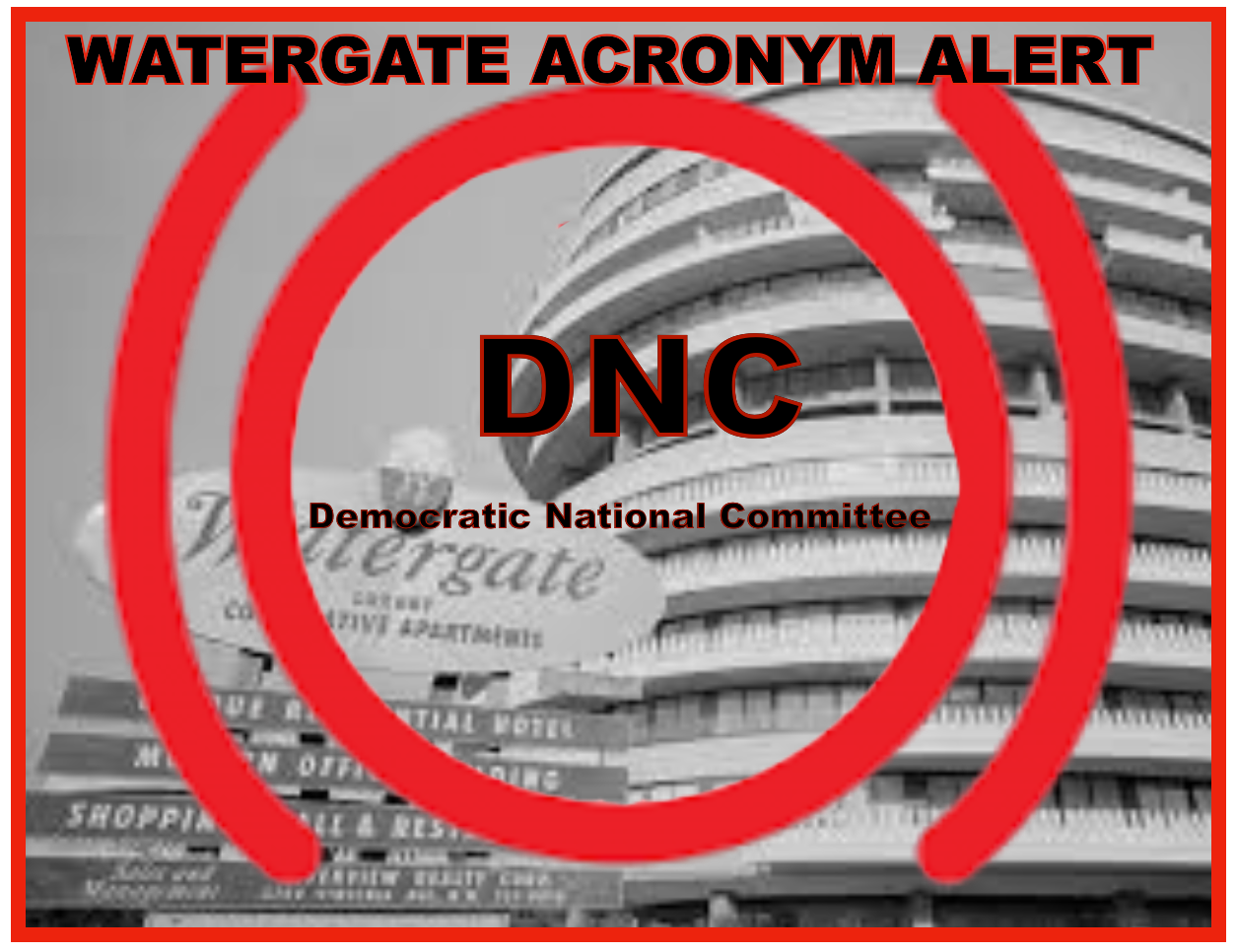
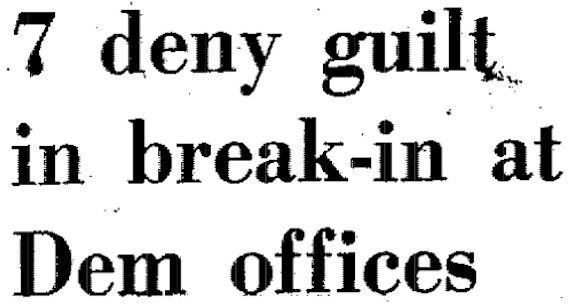






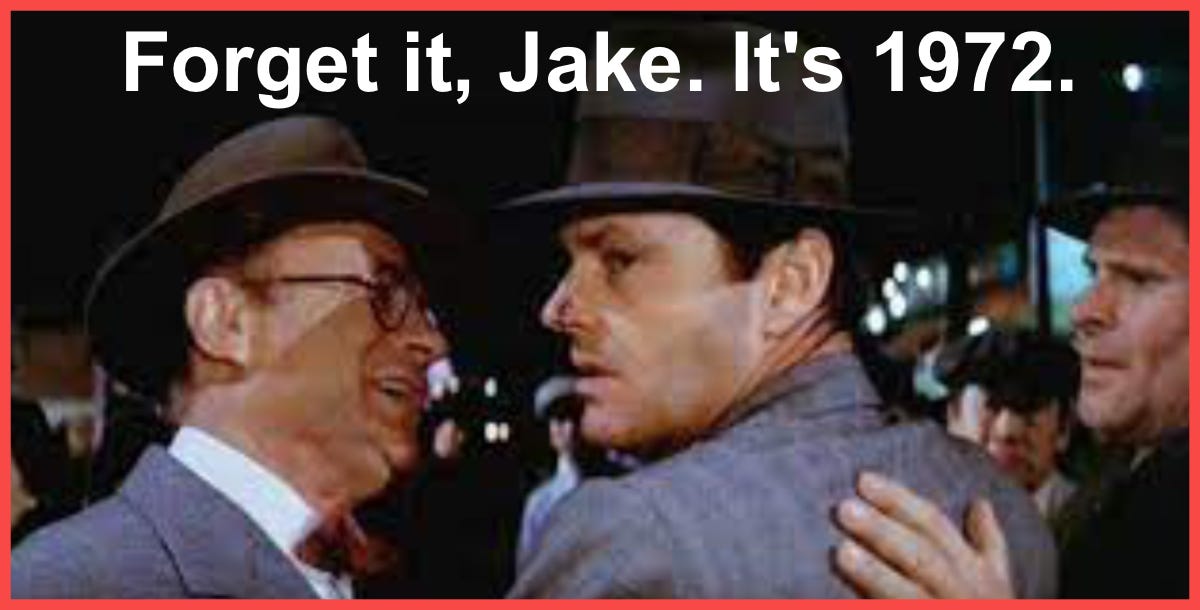






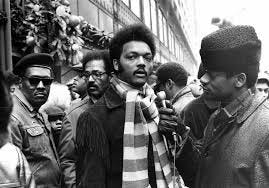







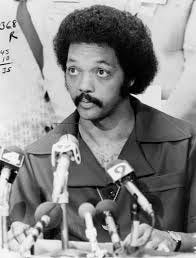





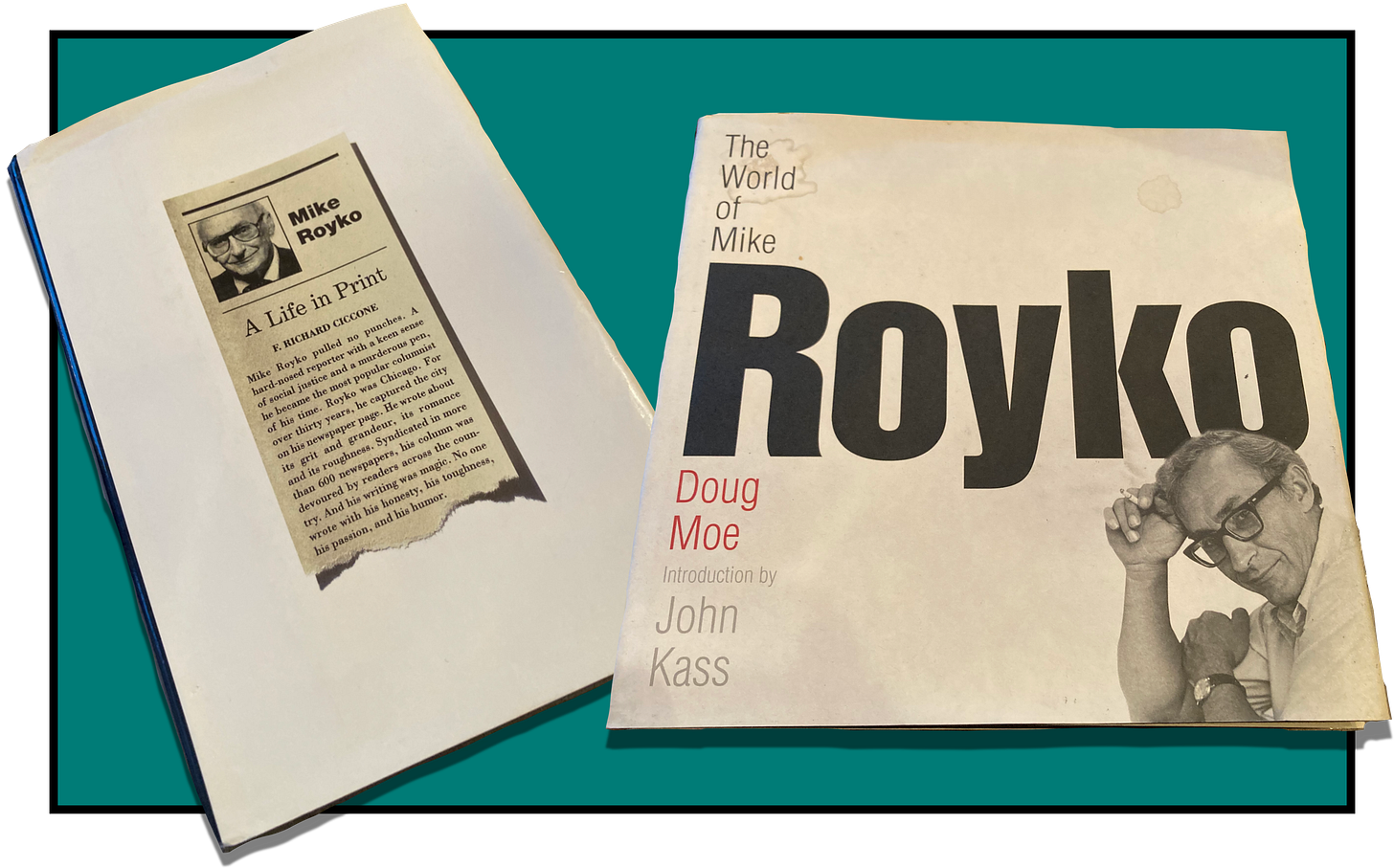



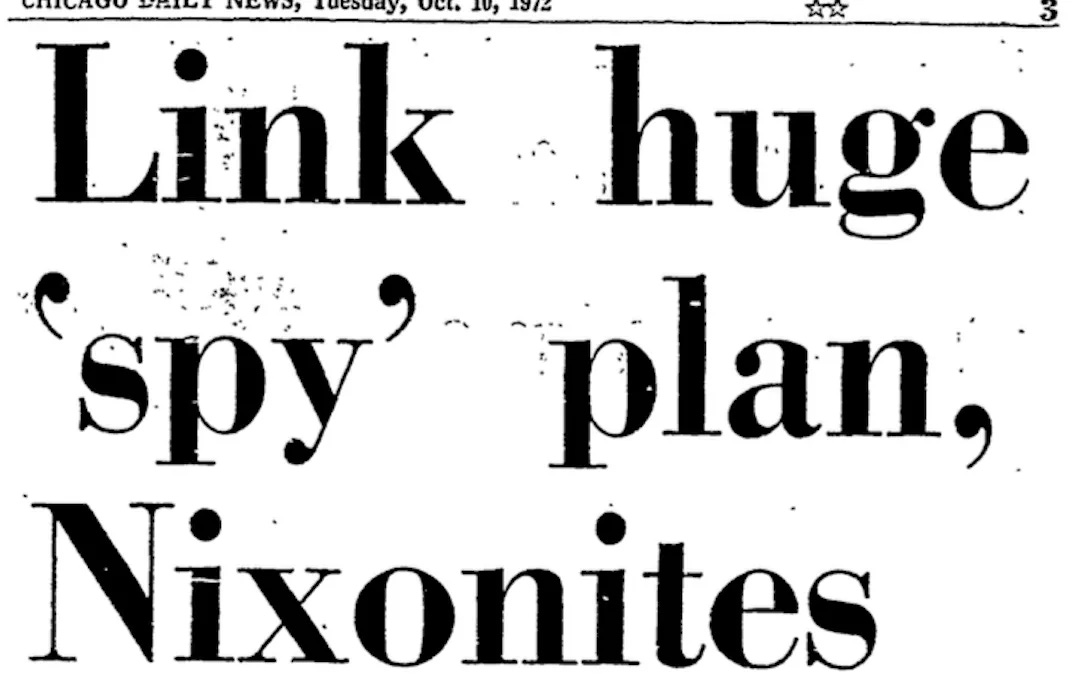








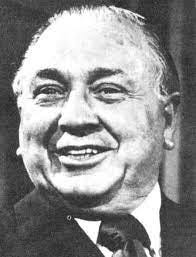






Jackson got the nickname Jetstream probably from the crack that the most dangerous place on Earth is to get between Jackson & a tv camera.
Good point!